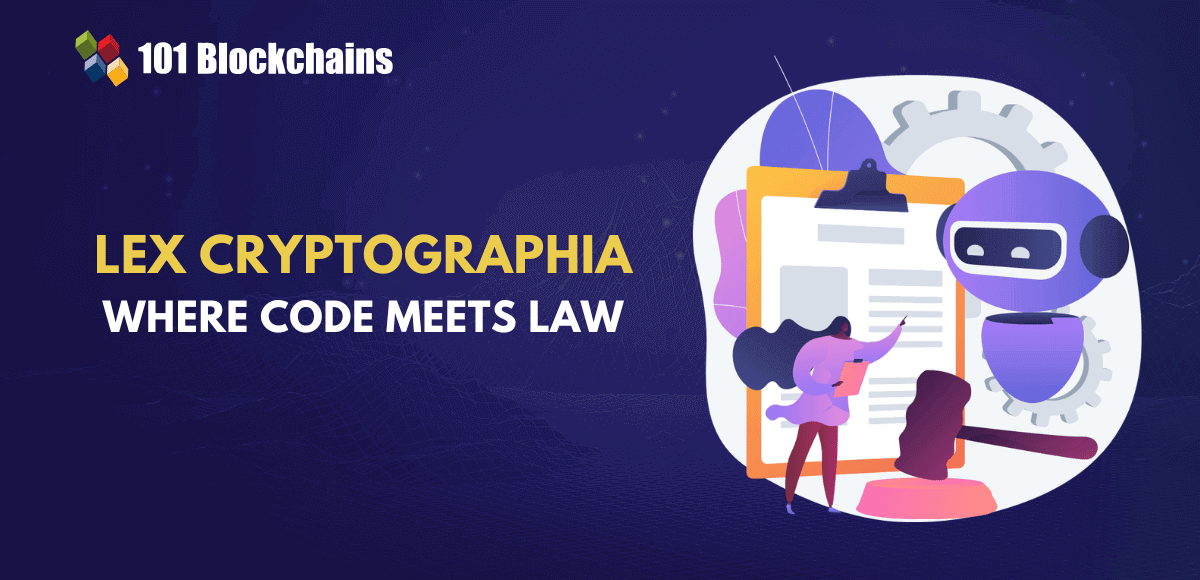The digital transformation of the traditional legal systems is accelerating. Well, it is driven by the introduction of blockchain or Web3, the same technology that has revolutionized some major industries like finance and healthcare. And at the core of this transformation lies smart legal contracts blockchain. Smart legal contracts are the agreements that execute automatically when the mentioned conditions are fulfilled.
These are not just digital formats of conventional paper agreements; they are contributing toward a shift in how legal obligations are created and enforced. Furthermore, it has also introduced the Lex Cryptographia, the law of this cryptographically powered world.
This blog explores more about blockchain smart contracts and their impact. We will also analyze whether the new shift will eliminate the traditional legal system.
Smart Legal Contracts- A Short Brief
Smart legal contracts blockchain are self-executing agreements, and they are digitally encoded. These contracts execute automatically when all the predefined conditions are met. Developed on blockchain platforms, smart legal contracts can remove the need for third-party oversight and manual enforcement, providing users with a more efficient as well as secure way to manage their legal obligations.
These contracts utilise code to perform actions, like updating records, transferring assets, initiating payments, and more. With this automation, it is possible to reduce delays, ensure consistency, and minimize the chances of disputes. Some key features of these contracts are:
- Better Security: Terms, identities, and execution are verified by cryptographic protocols, avoiding unauthorized changes and fraudulent transactions.
- Automation: All the transactions and agreements can be executed by software agents, lowering administrative expenses and simplifying workflows.
- Improved Efficiency: As these contracts remove paperwork and intermediaries, they can accelerate processes while keeping the operational costs low.
- Enhanced Transparency: All the transactions are recorded on a blockchain ledger, which is auditable and tamper-proof.
Multiple industries are gradually adopting these smart legal contracts blockchain, supporting the growth of blockchain smart contracts in various areas, such as insurance claims, DeFi or Decentralized Finance, supply chain logistics, and more. After all, these contracts combine technical precision with legal enforceability.
Familiarize yourself with the complete Ethereum smart contract development lifecycle and gain fluency in the best practices for smart contract coding, testing, and deployment with Smart Contracts Development Course.
Lex Cryptographia: Law Powered by Code
Lex Cryptographia is a legal system where all the rules are encoded in software and they are enforced by blockchain-based protocols, DAOs – Decentralized Autonomous Organizations, and smart contracts.
As the use of blockchain is growing, it promises to offer a system of law where code can shape accountability, interactions, and human judgment. In this model:
- Enforcement and jurisdiction are embedded in the blockchain protocol
- Execution is trustless and autonomous
- Code replaces conventional legal language
As per experts, Lex Cryptographia can significantly influence three elements of traditional law, i.e., human interpretation, territory, and language. It may shift the balance of power, leading to a more transparent and participatory regulation.
Will Smart Contracts Replace Lawyers? A Critical Debt
As smart legal contracts and blockchain technology continue to change the legal landscape, a common question frequently arises: “Will smart contracts replace lawyers?”
As mentioned above, these contracts are self-executing contracts powered by blockchain. They can perform certain actions automatically, but these are not a complete replacement for lawyers. The current trends show two possibilities:
Smart legal contracts blockchain lack the contextual understanding, ethical validation, or judgment, and interpretive flexibility that legal professionals bring to legal matters. Legal practices require dispute resolution, negotiation, and strategic advice. No digital systems or code can replace these human-centric aspects of law.
Lawyers will remain vital for ensuring regulatory compliance, drafting contracts, and adapting contracts to changing laws.
In the future, we may see hybrid models, where smart contract automation would be paired with traditional legal systems. Some legal tasks, like verifying compliance, drafting standardized legal agreements, and initiating payments, can be automated using smart legal contracts blockchain. These contracts can bring natural language and code together, ensuring compliance, flexibility, and enforceability.
To remain relevant, legal professionals need to evolve with time and become legal technologists- who understand smart contracts’ technical architecture and legal principles. And this can be possible through collaboration with the blockchain developers. A hybrid model can help businesses enjoy more transparent, fairer, and faster legal outcomes.
Curious to develop an in-depth understanding of web3 application architecture? Enroll now in the Web3 Application Development Course!
Legal Issues with Smart Contracts
By removing intermediaries and automating execution, smart legal contracts blockchain offer trust, efficiency, and transparency. However, these contracts also introduce various legal complexities. Let’s have a look at those legal risks.
Traditional legal contracts are governed by a specific country or state’s laws. However, when it comes to smart legal contracts, they exist on blockchain’s distributed ledgers. Those ledgers are not bound by the laws of any state or country. And this raises a question- Where is the smart legal contract located? This can make resolving disputes and enforcing rights challenging.
-
Acceptance By Existing Laws
In many jurisdictions, smart legal contracts blockchain are not legally binding. Well, some contracts may justify the basic requirements of consideration and acceptance, but they may lack the intent or clarity required for enforceability. On the other hand, courts may not consider code as a legal language.
-
Consumer Protection and Data Privacy
Smart contracts store personal information, and they should comply with various global privacy regulations and Acts, like CCPA, GDPR, and more. However, these laws often conflict with the transparency and immutability of blockchain.
Courts may need the help of experts who can carry out comprehensive technical audits in order to validate the integrity and reliability of smart contract code. This can take time.
-
Dispute Resolution in Blockchain
Traditional legal systems depend on arbitration and courts to resolve legal disputes. However, in a decentralized system, controls are distributed instead of being managed by a central authority. Users may take the help of blockchain-based dispute resolution platforms, but their enforceability and legitimacy are uncertain, making it challenging to resolve conflicts efficiently.
For Lex Cryptographia to flourish, legal systems need to evolve, and courts should become proficient in interpreting code. For now, the focus should be on using hybrid models to ensure enforceability and clarity in this new digital transformation.
Start learning Blockchain with World’s first Blockchain Career Paths with quality resources tailored by industry experts Now!
The Rise of Smart Contracts and Computable Law
Undoubtedly, Lex Cryptographia and smart legal contracts blockchain are showing a new phase of the traditional legal system in this digital age. While the potential is immense, it requires careful consideration of societal, ethical, and legal implications.
Developers, regulators, users, and lawyers need to collaborate to create systems that are inclusive, efficient, fair as well as accountable. It is important to understand that law is no longer just limited to paper and courtroom, it is expanding to code, moves through networks, and is also evolving with time, taking us toward the new era of computable law. To prepare for this transformation, enrolling in a Smart Contracts Development Course can empower individuals to bridge the gap between legal systems and emerging technologies, fostering innovation and accountability in the digital age.







